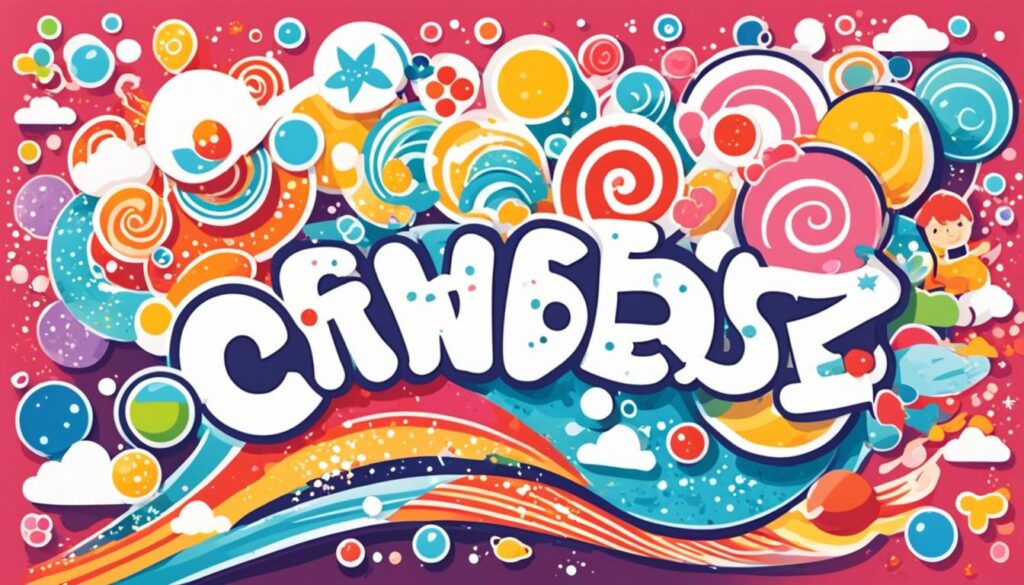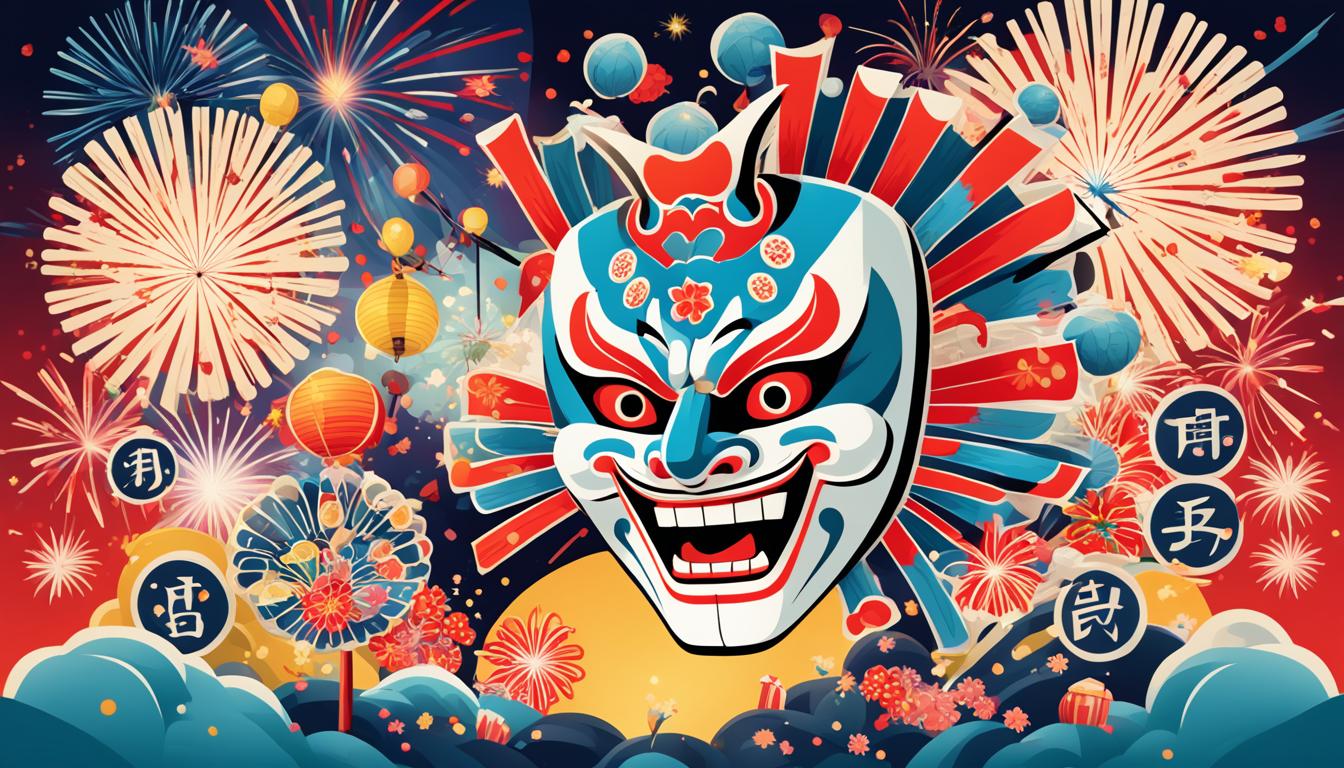Describing emotions in Japanese can be challenging, but expressing fun in Japanese is actually quite easy. There are several words and phrases you can use to convey the feeling of fun in Japanese. Let’s explore some of them.
In Japanese, the word for fun is “tanoshii” (楽しい). This word can be used to express enjoyment and amusement. It is a commonly used term in everyday conversation when talking about enjoyable experiences or activities.
When it comes to grammar, “tanoshii” is an adjective that can be used to describe a noun. For example, you can say “tanoshii yoru” (楽しい夜) to mean “fun night” or “tanoshii asobi” (楽しい遊び) to mean “fun activity.”
To pronounce “tanoshii” correctly, break it down into syllables: “ta-no-shii.” The “i” sound at the end is pronounced like the letter “e” in English. Accentuate the second syllable slightly, but remember to pronounce each syllable distinctly.
If you want to use an equivalent word for fun, you can also use “omoshiroi” (面白い). This word can mean both “interesting” and “fun,” depending on the context. It is more commonly used to describe something that catches your attention or arouses curiosity.
When writing these words in kanji characters, “tanoshii” is written as 楽しい, and “omoshiroi” is written as 面白い.
Understanding the cultural context of expressing fun in Japanese is important. Japanese society values politeness and modesty, which can sometimes influence how emotions are portrayed. While it may be more subtle compared to other languages, expressing fun in Japanese is still a common practice, especially in informal settings.
The Japanese language offers various ways to convey the feeling of fun, allowing you to express your enjoyment and excitement. By using words like “tanoshii” and “omoshiroi,” you can effectively communicate the concept of fun in Japanese.
How Do the Japanese Describe Emotions?
The Japanese have a unique way of expressing their emotions, influenced by cultural factors and the importance of politeness in the Japanese language. While they may appear reserved compared to Western cultures, there are still various ways to describe and convey emotions in Japanese.
When it comes to expressing emotions in Japanese, it’s important to consider the cultural differences and etiquettes surrounding emotional expression. Japanese people tend to prioritize harmony and avoid causing discomfort or embarrassment to others. As a result, they often rely on non-verbal cues and subtle gestures to convey their feelings.
However, there are specific Japanese words and expressions that are used to describe emotions. These words not only reveal the emotional state of the person but also provide insights into the nuances of the Japanese language. Understanding these emotional expressions can deepen your understanding of Japanese culture and enhance your communication skills.
| Japanese Word | Meaning |
|---|---|
| 喜び (yorokobi) | Joy |
| 悲しみ (kanashimi) | Sadness |
| 怒り (ikari) | Anger |
| 驚き (odoroki) | Surprise |
| 恐れ (osore) | Fear |
| 嫉妬 (shitto) | Jealousy |
The table above showcases some common Japanese words for emotions. These words can be used to describe a wide range of emotional experiences. Whether you’re feeling joy, sadness, anger, surprise, fear, or jealousy, the Japanese language has words to express these emotions.
It’s important to note that in addition to words, Japanese expressions and gestures also play a significant role in conveying emotions. Facial expressions, body language, and subtle shifts in tone can all contribute to the understanding of emotions in Japanese communication.
By gaining a deeper understanding of Japanese emotions and expressions, you can navigate cultural differences more effectively and enhance your communication with Japanese speakers. So, embrace the beauty of the Japanese language and explore the rich world of emotions it has to offer!
Japanese Words for Fun
In Japanese, there are several words and phrases that can be used to express the concept of fun. When you want to convey the feeling of enjoyment and amusement, here are some Japanese words you can use:
- Tanoshii (楽しい): This word directly translates to “fun” in English and is commonly used to describe enjoyable experiences or activities.
- Tanosimu (楽しむ): This verb means “to enjoy” and can be used to express the act of having fun or finding pleasure in something.
- Omoshiroi (面白い): This word carries the meaning of “interesting” or “amusing.” It can be used to describe something that is fun and entertaining.
Each of these words has its own nuances and usage, allowing you to express different aspects of fun in Japanese. Whether you’re describing a fun event, expressing your enjoyment of a particular activity, or simply having a good time, these words provide you with the vocabulary to convey the feeling of fun in Japanese.
Using Adjectives to Describe Fun

In Japanese, adjectives can be used to describe the feeling of fun. Some adjectives that can be used include “tanooshii” (楽しい), “omoshiroi” (面白い), and “tanoshikatta” (楽しかった). These adjectives can be used to describe a fun experience, activity, or event.
| Adjective | Meaning | Example Sentence |
|---|---|---|
| tanooshii | Enjoyable; fun | あのイベントはとても楽しいです。 (That event is very fun.) |
| omoshiroi | Interesting; entertaining | この本はすごく面白いです。 (This book is really interesting.) |
| tanoshikatta | Was fun; had fun | 昨日のパーティーは楽しかったです。 (Yesterday’s party was fun.) |
These adjectives can be used to vividly describe the experience of having fun in Japanese. Whether you want to talk about a fun event you attended, an interesting activity you participated in, or a past experience you found enjoyable, these adjectives will help you convey the feeling of fun in your conversation or writing.
Exclamations of Fun in Japanese
In Japanese, there are various exclamations and interjections that can be used to express the feeling of fun. These expressions add an extra layer of excitement and joy to a fun situation. Here are some examples:
| Japanese Exclamation | English Translation |
|---|---|
| 楽しい! | How fun! |
| 楽しげ! | Seems fun! |
| やった! | Yay! |
When you want to express your joy and enthusiasm, you can use these exclamations to capture the essence of fun in Japanese. Whether you’re enjoying a lively event or engaging in a thrilling activity, these interjections will help you convey your excitement. So go ahead and embrace the spirit of fun with these Japanese exclamations!
Phrases for Describing Fun Activities
When it comes to expressing fun activities in Japanese, there are specific phrases that can help you convey the joy and enjoyment you experience. Let’s explore some examples:
| Phrase | Translation |
|---|---|
| 楽しい活動 | Tanoshii Katsudo |
| 面白い仕事 | Omoshiroi Shigoto |
| 楽しい遊び | Tanoshii Asobi |
These phrases can be used to talk about a wide range of fun activities or enjoyable experiences. Whether you’re describing a fun work project, a thrilling adventure, or a playful game, these expressions will help you convey the excitement and entertainment.
With these phrases at your disposal, you’ll be able to express the fun and enjoyment of various activities in Japanese. So go ahead and try using these expressions to liven up your conversations and share your love for fun experiences!
Conclusion
Expressing fun in Japanese is not as difficult as it may seem. By using the right words, phrases, and expressions, you can effectively convey the feeling of fun in Japanese. Whether you’re describing a fun activity or expressing your enjoyment, there are plenty of options to choose from. So go ahead and have fun with the Japanese language!
Using words like “tanoshii” (楽しい), “tanosimu” (楽しむ), and “omoshiroi” (面白い) can help you express the concept of fun in Japanese with ease. These words capture the essence of enjoyment and amusement, allowing you to effectively convey your feelings.
Adjectives such as “tanooshii” (楽しい), “omoshiroi” (面白い), and “tanoshikatta” (楽しかった) can be used to describe a fun experience, activity, or event. These descriptive words add depth and expressiveness to your conversations, enabling you to paint a vivid picture of the fun you’ve had.
Additionally, don’t be afraid to use exclamations and interjections like “tanoshii!” (楽しい!), “tanoshige!” (楽しげ!), and “yattaa!” (やった!) to show your excitement and joy in a fun situation. These expressions infuse your speech with energy and enthusiasm, effectively conveying your sense of fun.

